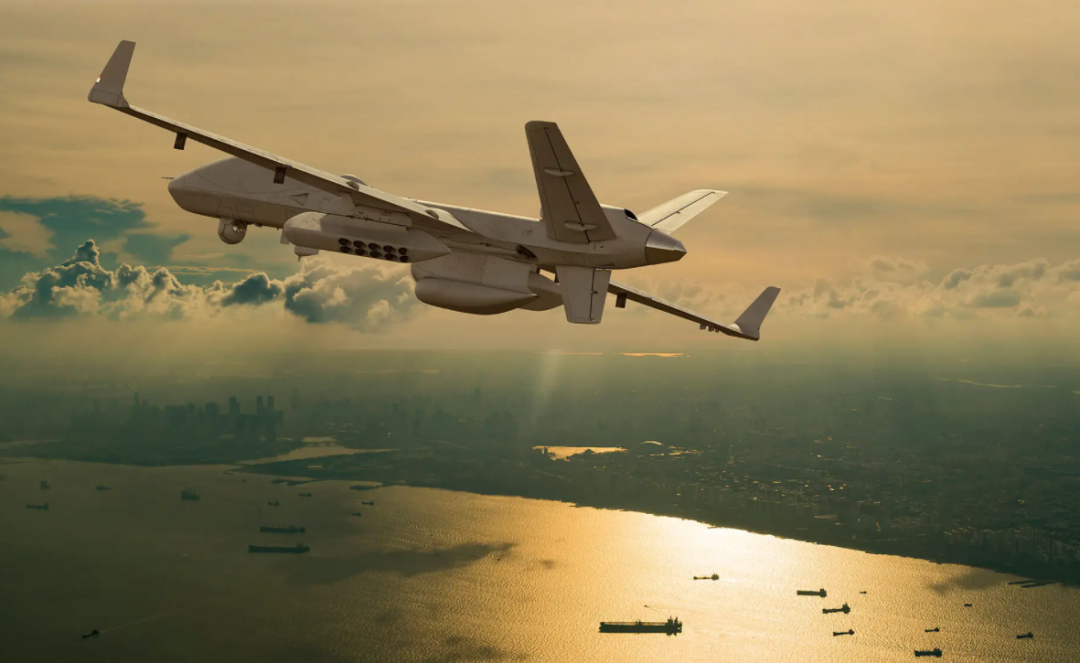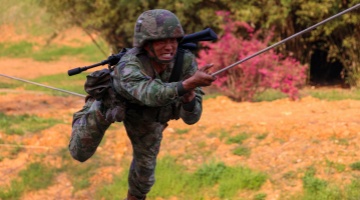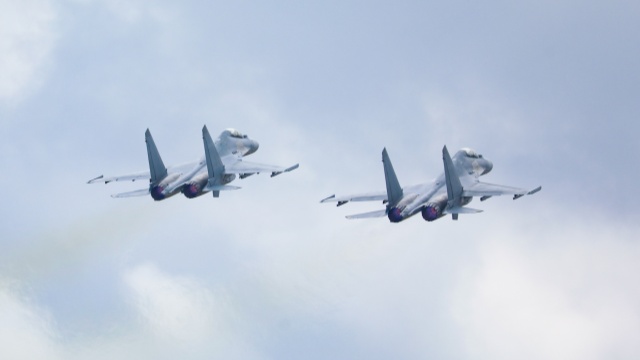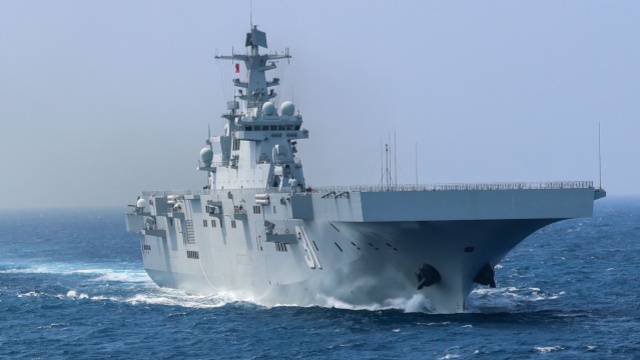
MQ-9B SeaGuardian drone (File Photo)
By Li Yue
Since the outbreak of the Russia-Ukraine conflict, Unmanned Aerial Vehicle (UAV) operations have brought great impacts on combat effectiveness, with their importance increasingly raised in the military sphere. According to the news recently quoted by the UK newspaper Financial Times from insiders, the US has decided to deliver four MQ-9B SeaGuardian drones to Taiwan in 2025 and integrate them into the system that U.S. forces in the region and the Japanese Self-Defense Force will use, when the three parties will share the real-time data of reconnaissance drones. This news immediately aroused wide concern from the public after being disclosed. Some analysts believe that the US arms sale of MQ-9B SeaGuardian drones to Taiwan and sharing of real-time data with itself and Japan seriously violates the one-China principle and will evidently further escalate tensions across the Taiwan Strait.
Military commentator and Professor Jin Yinan pointed out that, the four MQ-9B SeaGuardian drones that the Washington planned to sell to Taiwan are very different from some operational and tactical types employed in the Russia-Ukraine conflict. These models are not low-altitude drones targeted for attacking fixed ground targets, but high-altitude drones that can undertake a non-stop flight of 50 hours in the air, featuring a wide reconnaissance range and real-time intelligence gathering capabilities. In practical use, the drones can better evade ground fire attacks and complete strategic intelligence collection, reconnaissance, transfer, storage and sharing tasks.
It is particularly worth noting that the Washington will not only sell MQ-9B SeaGuardian drones to Taiwan but also integrate them into its joint combat image system with the Japanese Self-Defense Force. This is a very serious matter. The US envisions that the MQ-9B SeaGuardian drones can enable aerial signal relay even if the ground radar systems on the island are damaged in case of "warfare" in the Taiwan Strait. Meanwhile, the signals collected by the triple parties could also be shared through the drones to form joint combat images eventually, which will certainly have a major impact on the future so-called Taiwan Strait conflicts.
In recent years, Japan has been itching to stir up the Taiwan question, hyping up the so-called "China threat" theory, frequently and wantonly distorting right and wrong. Some Japanese politicians even brazenly clamored that "Any contingency for Taiwan is a contingency for Japan". At the previous G7 summit, the country deliberately bloated the Taiwan Strait topic in an attempt to contain the development of China by provoking disputes. Japan even intensified these moves recently by frequently championing the US, participating in a number of large-scale US-led military exercises and demonstrating its presence around the Taiwan Island. Some remarks pointed out that Japan, as a defeated country in WWII, hasn't deeply reflected on its past aggressive villainies but vainly attempts to revive militarism, which makes distinct its wild ambition to meddle in other countries' internal affairs and the situation in the Taiwan Strait. Professor Jin analyzed that the US and Japan speculate that China will sooner or later resolve the Taiwan question and achieve national reunification, in view of the increasing military imbalance across the Taiwan Strait. Believing that the unification of China has a significant impact on its interests, Japan cherishes an even more desperate hope than the US that China remains divided for long. This deserves vigilance from the international community.
In addition, it was reported by the Taiwan media that Chairman of the Taiwan People's Party Ko Wen-je has repeatedly triggered disputes in the island by making inappropriate remarks. Ko publicly proclaimed that he will prioritize the development of cyber forces to paralyze the mainland's high-speed railway, ATM and other systems if he wins the election. Some netizens commented that Ko was making crazy and nonsense talks while others condemned that his extreme remarks run the risk of "triggering a war". Jin proposed that Ko's remarks are very dangerous. Considering the fragility of global civilian systems, the consequences are unimaginable once attacks against these targets are launched. Taiwan's assumptive attacks against civilian facilities on the Chinese mainland were tantamount to a declaration of war, which would incur countermeasures from the Chinese government definitely. Therefore, Mr. Ko and those like-minded must be warned that they will surely be hoisted by their own petard if they dare to do so, and all the consequences will be first borne by those blusterers.
Editor's note: Originally published on military.cnr.cn, this article is translated from Chinese into English and edited by the China Military Online. The information and opinions in this article do not necessarily reflect the views of eng.chinamil.com.cn.









